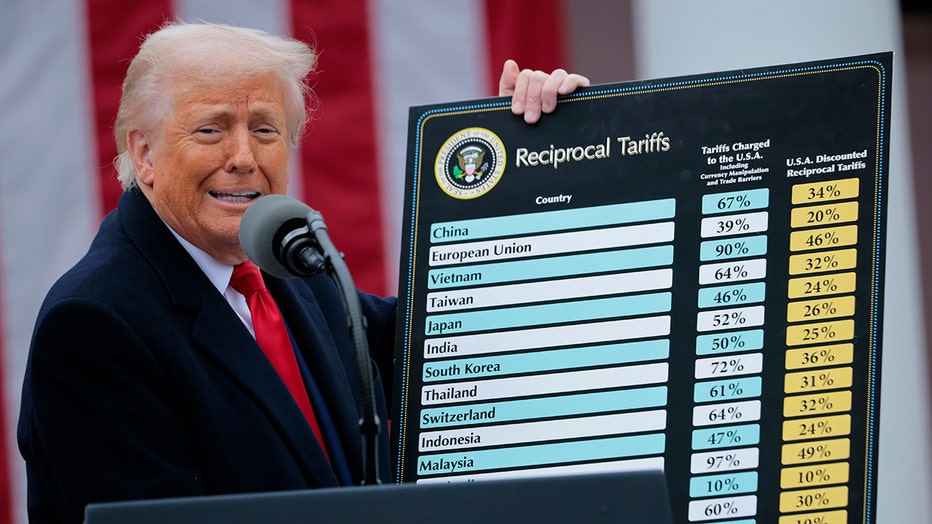Federal court blocks Trump from imposing sweeping tariffs under emergency powers law

Federal trade court blocks Trump's tariffs
The Court of International Trade on Wednesday blocked President Donald Trump from imposing sweeping tariffs on imports under the International Emergency Economic Powers Act.
WASHINGTON - A federal court has blocked President Donald Trump from imposing sweeping tariffs on imports under an emergency-powers law.
The ruling on Wednesday from a three-judge panel at the New York-based U.S. Court of International Trade came after several lawsuits arguing Trump has exceeded his authority and left the country's trade policy dependent on his whims.
Federal court blocks Trump from imposing sweeping tariffs
What they're saying:
"The Worldwide and Retaliatory Tariff Orders exceed any authority granted to the President by IEEPA to regulate importation by means of tariffs," the court wrote, referring to the 1977 International Emergency Economic Powers Act.
The case was heard by three judges: Timothy Reif, who was appointed by Trump, Jane Restani, named to the bench by President Ronald Reagan and Gary Katzman, an appointee of President Barack Obama.
It was filed in the U.S. Court of International Trade, a federal court that deals specifically with civil lawsuits involving international trade law.

U.S. President Donald Trump holds up a chart of "reciprocal tariffs" while speaking during a "Make America Wealthy Again" trade announcement event in the Rose Garden at the White House on April 2, 2025 in Washington, DC. (Photo by Chip Somodevilla/Ge
While tariffs must typically be approved by Congress, Trump has said he has the power to act to address the trade deficits he calls a national emergency.
Trump has repeatedly said the tariffs would force manufacturers to bring back factory jobs to the U.S. and generate enough revenue to reduce federal budget deficits. He used the tariffs as a negotiating cudgel in hopes of forcing other nations to negotiate agreements that favored the U.S., suggesting he would simply set the rates himself if the terms were unsatisfactory.
The ups and downs with Trump's tariffs
Dig deeper:
Trump’s policies — including massive import taxes — have clouded the outlook for the economy and the job market, raising fears that the American economy is headed toward a recession.
However, Trump’s tariff pullbacks, pauses and negotiations with some trading partners may have calmed nerves for the time being.
RELATED: Here's how Trump responded to reporter's 'nastiest' tariff question
Trump had initially imposed a stunning 145% tariff on most goods from China, but agreed to a 90-day pause for negotiations.
The president, who said the tariffs were designed to boost domestic manufacturing, used aggressive rhetoric to describe a global trade system that the United States helped to build after World War II, saying "our country has been looted, pillaged, raped and plundered" by other nations.
Trump said he was acting to bring in hundreds of billions in new revenue to the U.S. government and restore fairness to global trade.
The Source: The Associated Press contributed to this story. This story was reported from Los Angeles.

